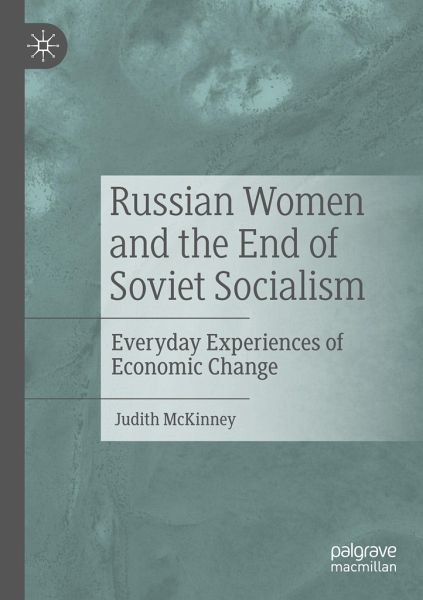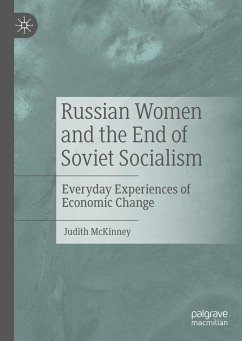
Russian Women and the End of Soviet Socialism
Everyday Experiences of Economic Change
Versandkostenfrei!
Versandfertig in 6-10 Tagen
38,99 €
inkl. MwSt.
Weitere Ausgaben:

PAYBACK Punkte
19 °P sammeln!
Initially expected to bring efficiency to the Russian economy and prosperity to Russian society, the shock therapy of price liberalization, privatization and macroeconomic stabilization introduced under Boris Yeltsin was quickly condemned as having worsened the lives of most Russians. Based on conversations with more than two dozen women in a provincial Russian capital, this book takes a retrospective look at these economic policies and explores how they transformed the trajectory of the lives of these women- both positively and negatively- in the family and in the workplace. McKinney consider...
Initially expected to bring efficiency to the Russian economy and prosperity to Russian society, the shock therapy of price liberalization, privatization and macroeconomic stabilization introduced under Boris Yeltsin was quickly condemned as having worsened the lives of most Russians. Based on conversations with more than two dozen women in a provincial Russian capital, this book takes a retrospective look at these economic policies and explores how they transformed the trajectory of the lives of these women- both positively and negatively- in the family and in the workplace. McKinney considers the everyday experiences of the women as they provided for their families, established businesses, travelled abroad, and adjusted to the new economic, political and social environment of the Late Soviet and Post-Soviet era. Through their divergent experiences, Russian Women and the End of Soviet Socialism casts light on how these women viewissues of gender, ethnicity, domestic and international politics, and the end of the Soviet experiment.
Students and scholars across a range of disciplines, including gender studies, sociology, economics and history, will find this book of interest.
Students and scholars across a range of disciplines, including gender studies, sociology, economics and history, will find this book of interest.














